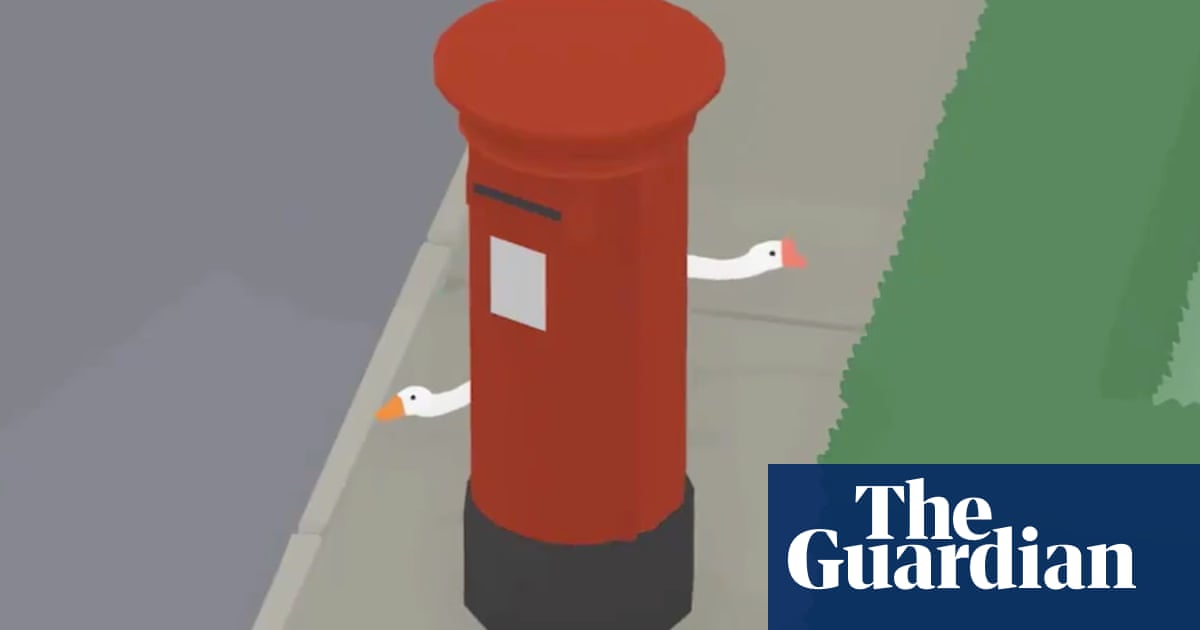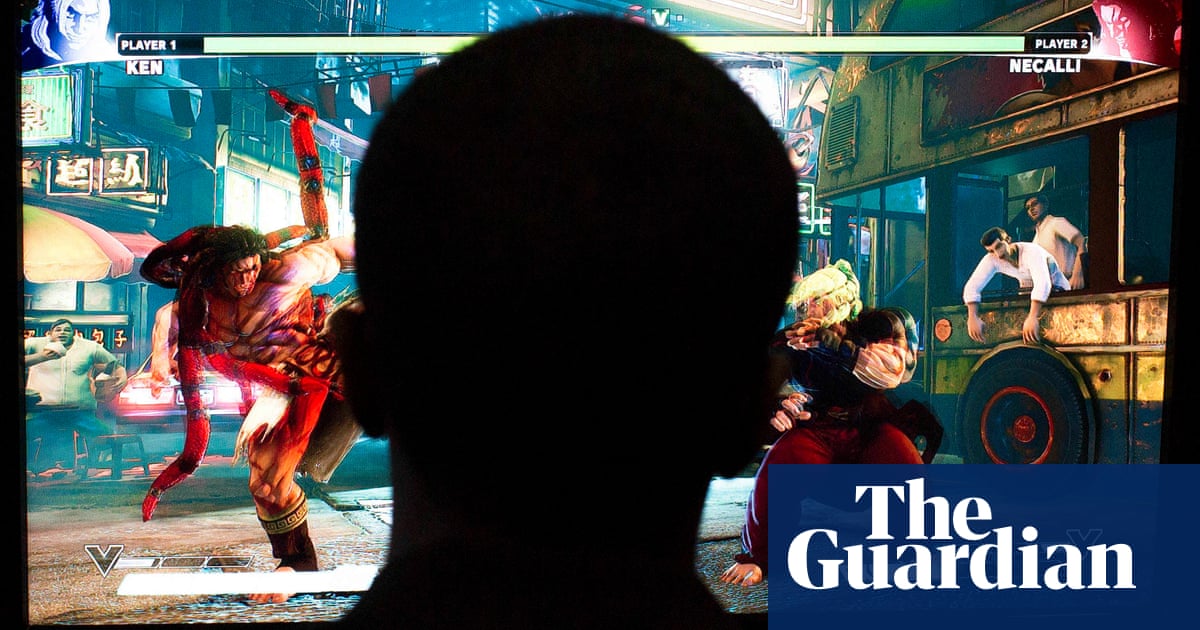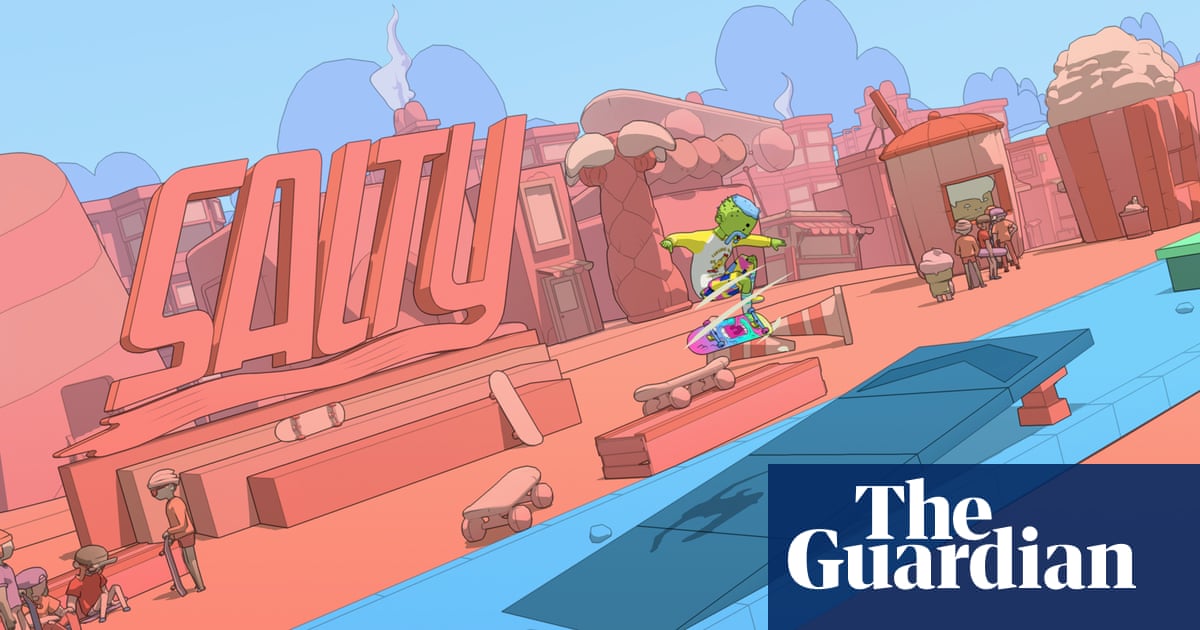
Welcome back to Pushing Buttons, folks! Readers in Britain, I hope neither you nor your games consoles are melting in the heat. But at least you’re not covered in fur.
Speaking of animals, I reviewed the cyberpunk cat game Stray this week, and it’s turned out to be much more than the shallow meme generator one might have expected based on its name. Like the 2019 comedy hit Untitled Goose Game, what elevates it is how completely you inhabit the spirit of the animal you control. In Stray, you’re a wild ginger cat: you scratch things you shouldn’t, you push things from high shelves, you find cosy places to curl up and purr, you endear yourself to the robotic denizens of an underground city. In Untitled Goose Game, you honk, chase and cause chaos, because you are horrible and you delight in your horrible gooseness. Fully committing to the role is fun in itself.
In most animal games, you play as an anthropomorphised creature with human feelings and thoughts – see Night in the Woods. Or the animal is a cartoonish mascot, like Sonic the Hedgehog and Banjo Kazooie. But playing a game from the perspective of an animal is a totally different way to interact with game worlds. When I played Shelter almost 10 years ago – which I pitched at the time as “like Journey, but with badgers” – I was struck by the emotional potency of playing a mama badger trying to keep her cubs alive. It is a naturalistic story of gradually encroaching peril, in which your goal is to, well, behave like a badger.
Recently, Gibbon: Beyond the Trees pressed those same emotional buttons: you play two gibbons trying to raise a baby gibbon in the face of habitat destruction and climate change. All you actually do is swing through the trees, but the game does an excellent job of telling a story through that limited language. In Ancestors: The Humankind Odyssey, you play as an ape and must balance the need for survival against the urge to explore and find things that might help your tribe evolve (or, more often, things that want to eat your tribe). It’s a real kick in the teeth when your apes continuously die, especially if you become emotionally invested in them.
Then there’s the shambolic Goat Simulator, from 2014, that lets you go completely wild and destroy things in the spirit of an animal that will do or eat pretty much anything. (A sequel is out this year.) This is more in the Untitled Goose Game genre, in that it uses its animal protagonist as an excuse for deranged behaviour. See also Ape Out, a visually and aurally arresting indie game whose simian star is a cipher for pure violent chaos.
Animals have long been used as symbolism in literature and cinema, often representing the wild and untamed, the paradoxical innocence and danger of nature. There’s untapped potential here in games, where animals are more often antagonists to be killed or trophies to be hunted. Speaking of which: what might Monster Hunter be like if one player took control of the pursued creature, feeding and nesting before springing into action when a squad of human hunters appears? Evolve tried this, but not very successfully. Can you do better, Capcom? I really want to play as a dragon in something better than Lair.
What to play
I’m going to stick with Stray for this week’s recommendation, because it’s one of my favourite games in years. You explore a closed-off city full of bemused robots, trying to find your way back to the outside and uncovering what happened to the postapocalyptic world you’re stalking through along the way. It’s like an underrated point-and-click adventure that came with a new PC in the 1990s, except with modern technology, so it looks stunning. It is powerfully novel and unexpectedly moving.
Available on: PS4, PS5, PC
Estimated play time: 5-8 hours
What to read
In response to sanctions that prevent Russian game developers from using US game engines and tools such as Unity, Russia may spend inordinate money to create its own game engine, PC Gamer reports.
The loot box legal controversy has been put to bed in the UK for the time being: despite research linking them to problem gambling, they will not be legally restricted, and the government will instead trust the games industry to regulate itself. Utterly disappointing.
Spotify has purchased Heardle, the song-recognition trivia game that riffs on Wordle.
Here is a 13ft Lego Bowser to admire. That is all.
What to click
As Dusk Falls review – superior storytelling elevates this interactive thriller
Super Mario Brothers Karamazov: literature begins to take gaming seriously
Classics and cash-ins: the unsung brilliance of video game compilations
Cuphead: The Delicious Last Course review – a mind-bending feast for the senses
There is no objective history of video games – every player’s experience is different
Question block
The Pushing Buttons email address hasn’t been working for a couple of weeks – but it’s been fixed, so hit reply on this email to send me a question for a future issue. This week’s query comes from Hayley L, who asks: Which Pokémon game would you recommend for playing with Switch?
You mentioned in your email that you, like me, have been playing Pokémon since the days of Red and Blue, dipping in and out as the mood takes you. The official Pokémon games on Switch are Sword and Shield, which are lovely but painfully slow (and so obviously for kids, not adults). Your other options are Let’s Go Pikachu/Eevee, a charming remake of the original Pokémon games fused with Pokémon Go, which I thoroughly enjoyed; or Pokémon Legends Arceus, a twist on the series that’s more like an adventure game, giving you freedom to roam and encounter creatures in their natural habitat. I’m a sucker for novelty, so I’d recommend Arceus, even though it looks a bit ropey. It might help you to see Pokémon as magical and new again.












